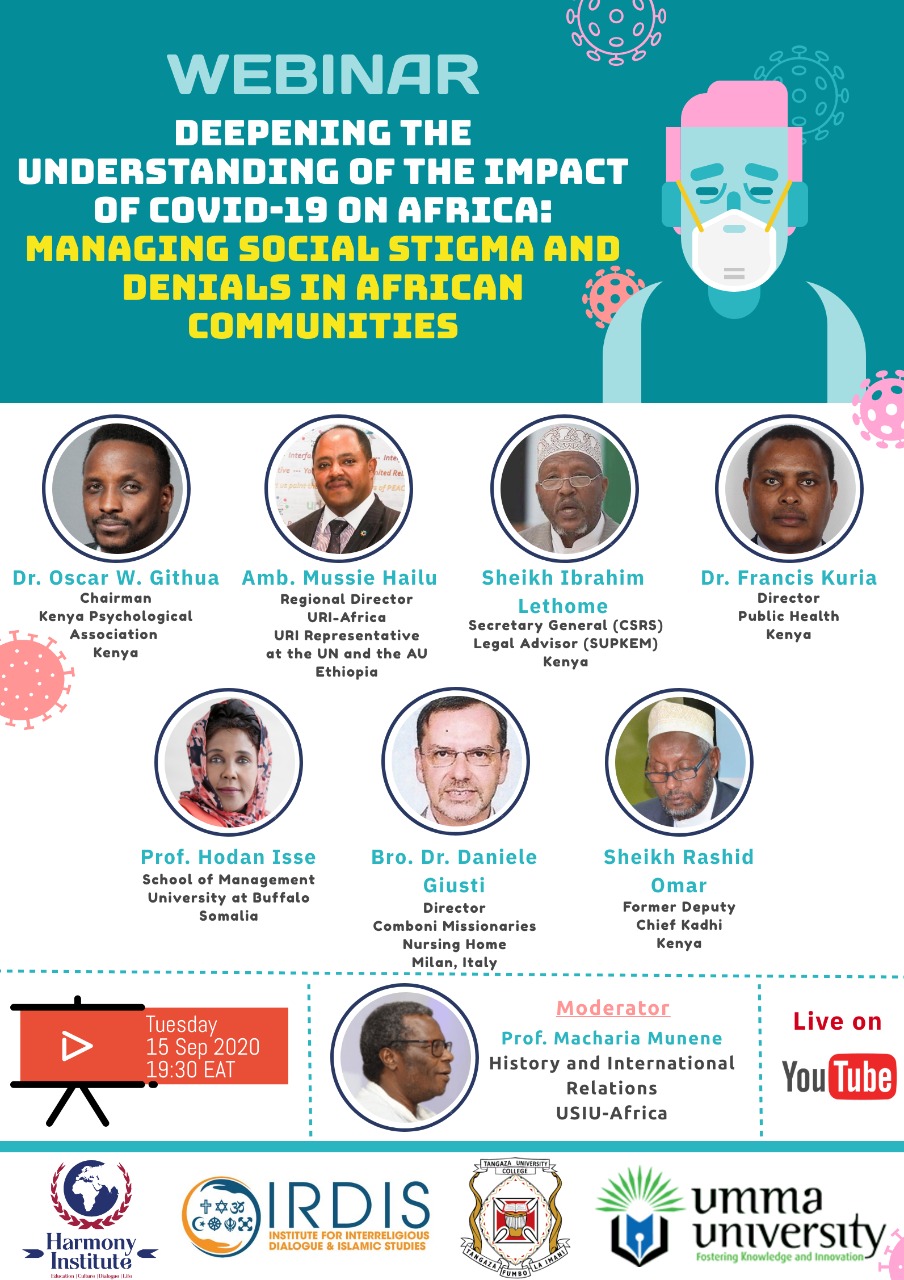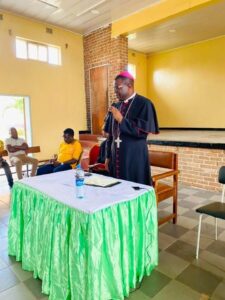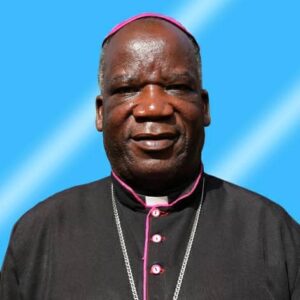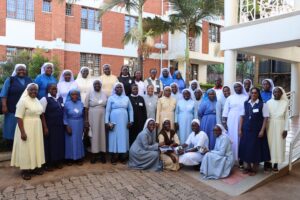KENYA: Religious Leaders Call for “Collective Responsibility” in Managing COVID-19 Stigma

KENYA: Religious Leaders Call for “Collective Responsibility” in Managing COVID-19 Stigma
Sr. Jecinter Antoinette Okoth, FSSA
In a bid to address the impact of social stigma associated with COVID-19 in the African continent, Religious leaders drawn from various religions including Christianity, Islam and Hinduism in a virtual session have called for collective responsibility to help tackle and manage the fears associated with the pandemic.
Speaking during the second International series of Webinar by the Interfaith and the Inter-University African forum aimed at deepening the understanding of the impact of COVID-19 on Africa and how to manage social stigma, the former Deputy Chief Kadhi in Kenya Sheikh Rashid Omar one of the panelists said that “there is need to instill social empathy to victims of stigma and denial through reclaiming the African heritage of mercifulness, relief from sufferings and collective responsibility towards the plight of those people who are the victims, the weak and the destitute.”
He added, “Religious leaders and institutions are to whip their subjects against all sorts of stigma and denial through scriptural teachings and other religious literatures.”
The former Deputy Chief Kadhi noted that Stigma is not only limited to this current COVID-19 pandemic but also other pandemics as well. Hence, “We need to use international, regional and national legal instruments against stigma such as formulating specific social policies addressing the concept of stigma and denials.
In this case, there is need to “enhance public education campaign against stigma and denial at all levels of institutions” and “inculcate paradigm shift from shock cognition to normative cognition to the problem,” Sheikh Omar underscored.
The webinar initiative by the Interfaith and the Inter-University African forum has been inspired by religious virtues, values and teachings that has potential to reduce death, sufferings, psychological problems, avoid economic regression and control the pandemic and other problems in Africa.
According to the Director of the Institute for Interreligious Dialogue and Islamic Studies (IRDIS) at Tangaza University College (TUC) Fr. Innocent Maganya “The interfaith initiative will work to assure the realization of sustainable health system, peace and development agenda through collaborative partnership and Faith Corporation in Africa to achieve social transformation and improved quality of life.”
Additionally, Fr. Maganya a member of the Society of Missionaries of Africa and a native of the Democratic Republic of Congo, said that the objective of the Interfaith and Inter-University Africa forum is “to organize meetings that analyze the interaction between humanity, systems and nature for enhanced sustainability in African societies in the future, to advance cultural knowledge and dialogue through collaborative partnerships and experienced sharing.”
Besides, he continued, the Inter-faith initiative is “to apply and undertake research to solve real world sustainability problems in Africa societies and to promote solution oriented projects on interreligious dialogue and community development to drive social transformation in Africa, and to promote collaborative partnerships between academia and religious organizations.”
On her part, the School of Management University at Buffalo in Somalia Professor Hodan Isse observed that the impact of COVID-19 in Africa may not be assessed accurately due to “lack of institutional capacity and effective measures compounding to the problem” and “misinformation due to dissemination of untrue and harmful information regarding how people contract the virus, how it spreads and the lack of cure.”
Professor continued, “In Africa, there is lack of delivery of basic social services, lack of preparedness, lack of revenue to combat the spread of the virus, conflict based on religions and clans, recurring natural disasters like floods, locusts and famine among others and the spread of the virus to other vulnerable communities such as Migrants, IDPs who area in more exposed conditions where COVID-19 spreads may also lead to inaccurate information about the impact of the pandemic.”
The initiative of the sessions is to bring together Inter-faith groups and Faith-based academic institutions all over Africa to create awareness and deepen understanding on the critical issues affecting the continent from time to time.”


